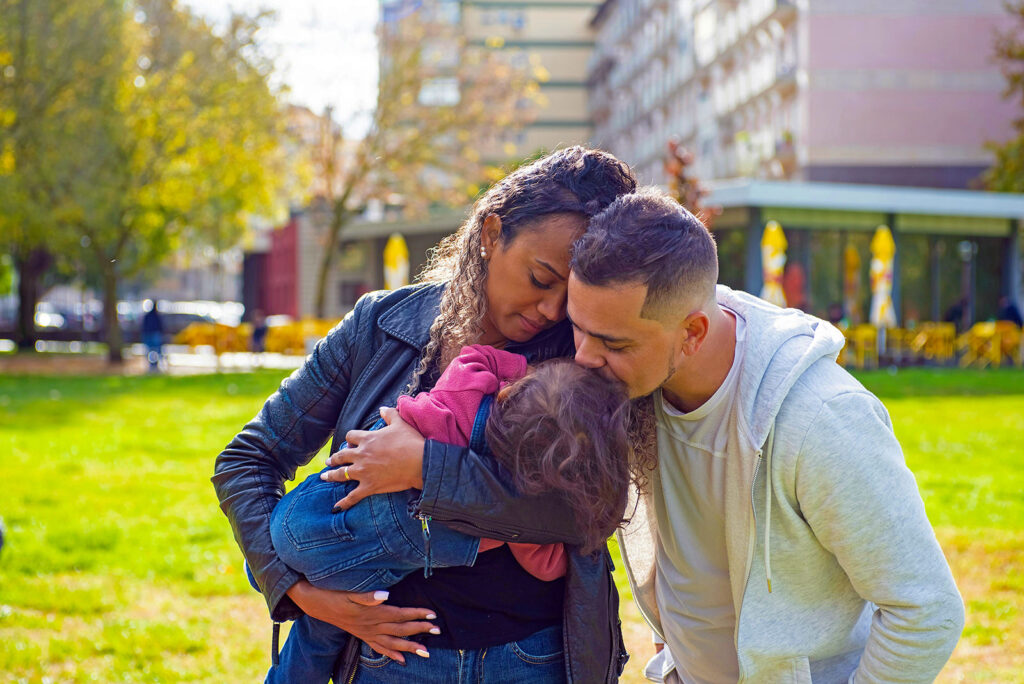This page is also available in: Español (Spanish)
Bringing a child into your family through adoption is a special and life-changing journey. It involves important legal steps to make sure everything is done correctly and the child’s best interests are protected. At Jorge L. Gonzalez Law, we are here to help you understand and navigate the adoption process with care and confidence.
Adopting a Child in Florida
Adoption is a legal way to form a lasting parent-child bond. In Florida, single adults or married couples can adopt once they meet specific criteria and complete a series of steps. These requirements are in place to make sure that adoptive parents can offer a secure and nurturing home. See Fla. Stat. 63.042 and the rest of Chapter 63 of the Florida Statutes for more information.

Different Ways to Adopt
- Agency Adoptions: A special company helps birth parents and new parents find each other. They do checks on the new parents, like looking at their background and visiting their home.
- Independent Adoptions: Birth parents and new parents find each other on their own, without a company. It’s important to follow all the rules to make sure everyone is treated fairly.
- International Adoptions: This is when you adopt a child from another country. You have to follow the rules of both the U.S. and the child’s home country. Sometimes you might need to visit that country.
- Stepparent Adoptions: This is when a stepparent adopts their spouse’s child. Usually, the child’s other biological parent has to agree, and their legal rights might end.
- Relative Adoptions: If parents can’t care for their children, a relative (like an aunt, uncle, or grandparent) can adopt them. This keeps the child with family.
- Foster Care Adoptions: This is adopting a child who is already in the foster care system.
- Adult Adoptions: This is simpler because only the adult being adopted needs to consent.
- Second-Parent Adoptions: This lets a second parent (like a partner) legally adopt their partner’s child without taking away the first parent’s rights.
- Embryo Adoptions: This is when a couple adopts frozen embryos (tiny beginnings of a baby) that another couple doesn’t want to use.
Adopting a child involves a series of key stages:
- Preparation and Education: Prospective parents typically engage in training and informational sessions to ready themselves for the responsibilities of adoption.
- Assessment and Screening: A social worker will conduct a comprehensive home study to evaluate the suitability of your living environment. Additionally, background checks are performed to confirm your ability to provide a secure and nurturing home.
- Child Matching: Once approved, you’ll begin the process of identifying a child for adoption.
- Parental Consent: In most adoption scenarios, the birth parents must provide their informed consent.
- Legal Petition: The formal legal process commences with the submission of an adoption petition to the court.
- Judicial Review: Your case will be reviewed in court, with a judge ultimately issuing the final ruling on the adoption.
- Finalization: Upon approval, a new birth certificate is issued, legally recognizing the adoptive parents.
Adoption Communication Options
When choosing an adoption plan, families decide how much contact birth parents and adoptive families will have. Here are the main types:
- Open Adoption: Allows ongoing contact between birth parents and adoptive families, often forming a broader support network for the child. The amount of contact varies.
- Closed Adoption: Offers privacy with little to no direct contact. Essential non-identifying information, as medical history, is still shared.
- Semi-Open Adoption: A balanced approach that permits some communication, often through an agency, while maintaining boundaries.
Choosing the right communication style ensures the child’s well-being and respects everyone involved in the adoption.
How Jorge L. Gonzalez Law Can Help
The decision to adopt is a heartfelt one, and we are here to provide the legal support you need for a smooth process and to secure your parental rights. We can help you:
- Understand the different types of adoption and which one is right for you.
- Navigate the legal requirements, paperwork, and court procedures.
- Ensure all necessary consents are obtained and parental rights are properly handled.
- Address any complex issues that may arise, such as interstate or international adoptions.
Contact us today at 305-227-4700 to discuss your adoption goals and how we can help you build your family.

